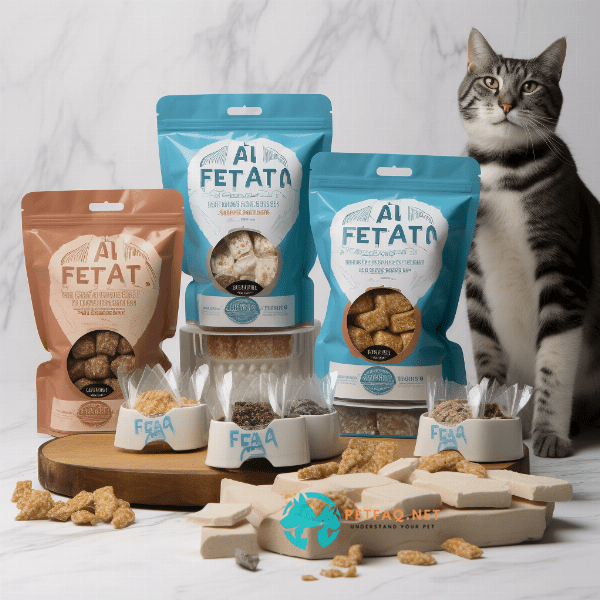Table of Contents
- Understanding Cat Inflamed Gums: Causes and Symptoms
- Diagnosing Inflamed Gums in Cats: When to See a Vet
- Complications of Untreated Cat Inflamed Gums
- Home Remedies for Cat Inflamed Gums: Do They Work?
- Professional Treatment Options for Cat Inflamed Gums
- Prevention of Cat Inflamed Gums: Best Practices for Feline Dental Health
- The Role of Diet in Preventing Cat Inflamed Gums
- Managing Pain and Discomfort in Cats with Inflamed Gums
- Potential Long-term Effects of Cat Inflamed Gums on Feline Health
- Loving Your Cat through Inflamed Gums: Tips for Caregivers
Understanding Cat Inflamed Gums: Causes and Symptoms
Inflamed gums, or gingivitis, is a common dental problem among cats. This condition occurs when the gums become swollen, red, and tender, making it difficult for your cat to eat or even groom themselves. Understanding the causes and symptoms of Cat inflamed gums can help you identify the problem early and seek appropriate treatment.
Causes of Cat Inflamed Gums
Poor dental hygiene is one of the primary causes of cat inflamed gums. When food particles and bacteria accumulate in your cat’s mouth, they form plaque, which can harden and turn into tartar. Tartar buildup irritates the gums, leading to inflammation and infection. Other factors that can contribute to cat inflamed gums include:
- Tooth decay
- Oral injuries or trauma
- Autoimmune diseases
- Feline leukemia virus (FeLV) or feline immunodeficiency virus (FIV)
Symptoms of Cat Inflamed Gums
The signs of cat inflamed gums may vary depending on the severity of the condition. In mild cases, you may notice redness or swelling of the gums, and your cat may experience bad breath or drooling. As the condition worsens, your cat may experience bleeding gums, loss of appetite, and even tooth loss. If left untreated, cat inflamed gums can progress to periodontitis, a more severe form of gum disease that can cause irreversible damage to your cat’s teeth and gums.
If you notice any of these symptoms in your cat, it is essential to seek veterinary care immediately. Your vet can assess the severity of the condition and recommend appropriate treatment to alleviate your cat’s discomfort and prevent further dental problems.
Understanding the causes and symptoms of cat inflamed gums can help you take proactive steps to prevent and treat this common condition. By maintaining your cat’s dental hygiene and seeking timely veterinary care, you can help your furry friend maintain optimal dental health and overall wellbeing.

Diagnosing Inflamed Gums in Cats: When to See a Vet
If you suspect that your cat has inflamed gums, it is important to seek veterinary care as soon as possible. A prompt diagnosis can help prevent further damage to your cat’s teeth and gums and improve their quality of life. Here are some key steps to help you diagnose cat inflamed gums:
Observe Your Cat’s Behavior
The first step in diagnosing cat inflamed gums is to observe your cat’s behavior. If your cat is reluctant to eat or groom themselves, this may be a sign of dental pain. Other symptoms to look out for include bad breath, drooling, and bleeding gums.
Schedule a Veterinary Exam
If you suspect that your cat has inflamed gums, it is essential to schedule a veterinary exam. During the exam, your vet will conduct a thorough oral examination to assess the severity of the condition. They may also recommend dental X-rays to evaluate your cat’s teeth and gums more closely.
Seek Treatment
Once your vet has diagnosed cat inflamed gums, they will recommend an appropriate treatment plan based on the severity of the condition. Treatment options may include professional dental cleaning, antibiotics to treat any underlying infections, and pain management to alleviate your cat’s discomfort.
Prevention is Key
Preventing cat inflamed gums is key to maintaining your cat’s dental health. Regular dental checkups, daily tooth brushing, and a healthy diet can all help prevent the development of cat inflamed gums. By taking proactive steps to prevent dental problems in your cat, you can help ensure that they maintain optimal dental health and overall wellbeing.
Overall, prompt diagnosis and treatment are crucial in managing cat inflamed gums. By observing your cat’s behavior, scheduling regular veterinary exams, and taking preventive measures, you can help keep your cat’s teeth and gums healthy for years to come.

Complications of Untreated Cat Inflamed Gums
If left untreated, cat inflamed gums can lead to a range of complications that can affect your cat’s overall health and wellbeing. Here are some of the potential complications of untreated cat inflamed gums:
Periodontitis
Untreated cat inflamed gums can progress to periodontitis, a more severe form of gum disease that can cause irreversible damage to your cat’s teeth and gums. Periodontitis can cause tooth loss, jawbone deterioration, and even systemic infections that can affect your cat’s overall health.
Pain and Discomfort
Cat inflamed gums can cause pain and discomfort for your cat, making it difficult for them to eat, groom themselves, and enjoy daily activities. This can significantly impact their quality of life and overall wellbeing.
Increased Risk of Other Health Problems
Untreated cat inflamed gums can increase your cat’s risk of other health problems, such as heart disease and kidney disease. This is because the bacteria in your cat’s mouth can travel through their bloodstream and affect other organs in their body.
By understanding the potential complications of untreated cat inflamed gums, you can take proactive steps to prevent and treat this common dental problem in cats. Regular dental checkups, daily tooth brushing, and a healthy diet can all help prevent the development of cat inflamed gums and protect your cat’s dental health and overall wellbeing.
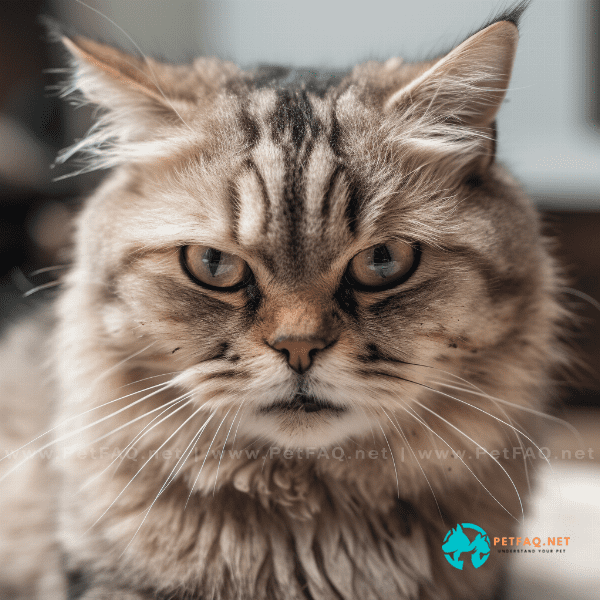
Home Remedies for Cat Inflamed Gums: Do They Work?
If your cat has inflamed gums, you may be wondering if home remedies can provide relief. While some home remedies may help alleviate your cat’s discomfort, it is important to note that they are not a substitute for professional veterinary care. Here are some common home remedies for cat inflamed gums and their effectiveness:
Brushing Your Cat’s Teeth
Regular tooth brushing is one of the most effective ways to prevent and treat cat inflamed gums. Brushing your cat’s teeth daily can help remove plaque and tartar buildup, reducing the risk of gum inflammation and infection.
Coconut Oil
Coconut oil is a natural anti-inflammatory and can help reduce swelling and inflammation in your cat’s gums. You can apply coconut oil to your cat’s gums using a clean cloth or cotton swab.
Salt Water Rinse
A saltwater rinse can help reduce inflammation and infection in your cat’s gums. Mix one teaspoon of salt with eight ounces of warm water and use a clean cloth or cotton swab to apply the solution to your cat’s gums.
While these home remedies may provide some relief for cat inflamed gums, it is important to seek professional veterinary care for a proper diagnosis and treatment plan. Your vet may recommend professional dental cleaning, antibiotics, and pain management to alleviate your cat’s discomfort and prevent further dental problems.
Overall, home remedies can complement professional veterinary care for cat inflamed gums but should not be relied upon as the sole treatment method. By taking proactive steps to maintain your cat’s dental health, you can help ensure that they lead a happy and healthy life.
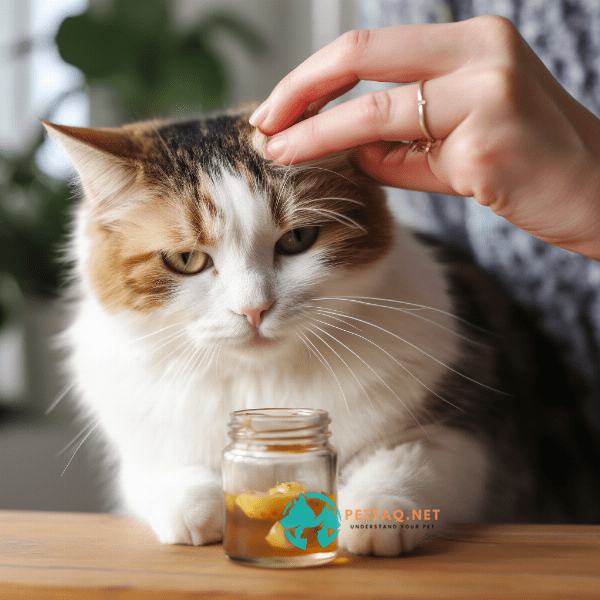
Professional Treatment Options for Cat Inflamed Gums
If your cat has inflamed gums, your vet may recommend professional treatment options to alleviate their discomfort and prevent further dental problems. Here are some common professional treatment options for cat inflamed gums:
Antibiotics
If your cat has an underlying infection that is causing their inflamed gums, your vet may prescribe antibiotics to treat the infection. Antibiotics can help reduce inflammation and prevent the infection from spreading.
Pain Management
Cat inflamed gums can cause significant pain and discomfort for your cat. Your vet may prescribe pain medication or recommend over-the-counter pain relief options to alleviate your cat’s discomfort and improve their quality of life.
Surgery
In severe cases of cat inflamed gums, surgery may be necessary to remove damaged or infected teeth or to repair damage to the gums and jawbone. Your vet will assess the severity of the condition and recommend the most appropriate treatment option for your cat.
Overall, professional treatment options can provide effective relief for cat inflamed gums and help prevent further dental problems. By seeking timely veterinary care and following your vet’s treatment plan, you can help your cat maintain optimal dental health and overall wellbeing.
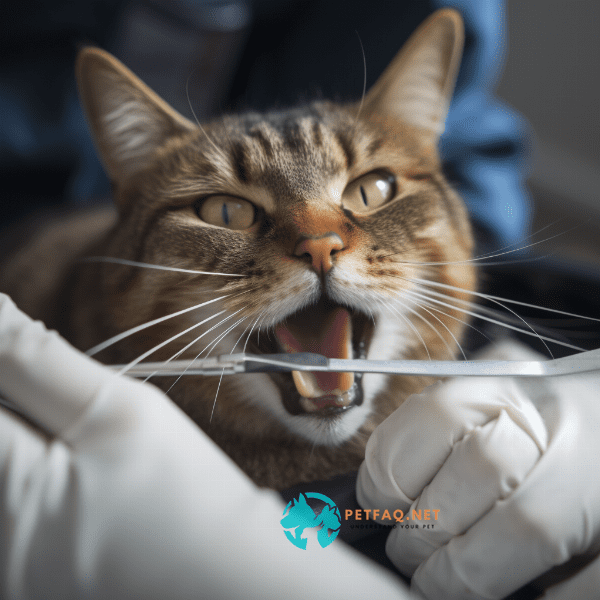
Prevention of Cat Inflamed Gums: Best Practices for Feline Dental Health
Preventing cat inflamed gums is key to maintaining your cat’s dental health and overall wellbeing. Here are some best practices for feline dental health to help prevent cat inflamed gums:
Regular Dental Checkups
Regular dental checkups are essential for maintaining your cat’s dental health. Your vet can assess the health of your cat’s teeth and gums and recommend appropriate preventive measures or treatment options.
Healthy Diet
A healthy diet can also help prevent cat inflamed gums. Feeding your cat a balanced diet that is rich in nutrients and low in carbohydrates can help maintain optimal dental health.
Professional Dental Cleaning
Professional dental cleaning can also help prevent cat inflamed gums. Your vet can recommend an appropriate schedule for professional dental cleaning based on your cat’s age and dental health.
By following these best practices for feline dental health, you can help prevent the development of cat inflamed gums and ensure that your cat maintains optimal dental health and overall wellbeing.
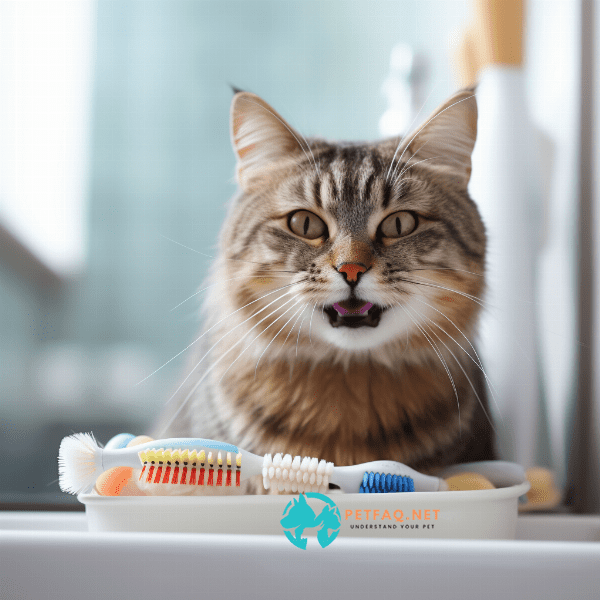
The Role of Diet in Preventing Cat Inflamed Gums
Feeding your cat a healthy diet is crucial for maintaining optimal dental health and preventing cat inflamed gums. Here are some ways that diet can play a role in preventing cat inflamed gums:
Nutrient-Dense Foods
Feeding your cat nutrient-dense foods can help promote healthy teeth and gums. Look for foods that are rich in vitamins and minerals, such as calcium and vitamin D, which are essential for strong teeth and healthy gums.
Low-Carbohydrate Foods
Feeding your cat a low-carbohydrate diet can also help prevent cat inflamed gums. Carbohydrates can contribute to the growth of plaque and tartar, which can lead to gum inflammation and infection.
Wet Food
Feeding your cat wet food can help prevent cat inflamed gums by promoting healthy chewing behavior and reducing the risk of plaque and tartar buildup. Wet food can also help keep your cat’s mouth hydrated, which can prevent dry mouth and promote healthy gums.
Avoiding Table Scraps
Avoiding table scraps and human food is important for maintaining your cat’s dental health. Human food can be high in carbohydrates and sugar, which can contribute to the development of cat inflamed gums.
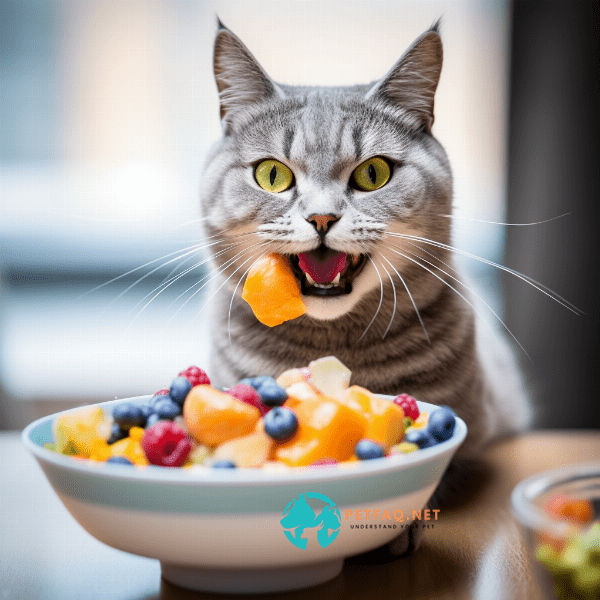
Managing Pain and Discomfort in Cats with Inflamed Gums
Cat inflamed gums can cause significant pain and discomfort for your furry friend. Here are some ways to manage pain and discomfort in cats with inflamed gums:
Pain Medication
Your vet may prescribe pain medication to alleviate your cat’s discomfort. Pain medication can help reduce inflammation and relieve pain, allowing your cat to eat, groom themselves, and enjoy daily activities.
Soft Food
Feeding your cat soft food can also help manage pain and discomfort in cats with inflamed gums. Soft food is easier to eat and can help reduce the risk of further damage to the gums and teeth.
Dental Treats and Chews
Dental treats and chews can also help manage pain and discomfort in cats with inflamed gums. These treats can help promote healthy chewing behavior and remove plaque and tartar buildup from your cat’s teeth, reducing the risk of gum inflammation and infection.
Cold Compresses
Applying a cold compress to your cat’s inflamed gums can help reduce swelling and relieve pain. You can use a clean cloth or towel to apply the compress to your cat’s gums for a few minutes at a time.
Preventing Further Damage
Preventing further damage to your cat’s teeth and gums is also important for managing pain and discomfort in cats with inflamed gums. Regular dental checkups, daily tooth brushing, and a healthy diet can all help prevent further damage and protect your cat’s dental health.
Overall, managing pain and discomfort in cats with inflamed gums requires a combination of veterinary care and at-home management. By following your vet’s treatment plan and taking proactive steps to prevent further damage, you can help your cat manage pain and discomfort and maintain optimal dental health and overall wellbeing.
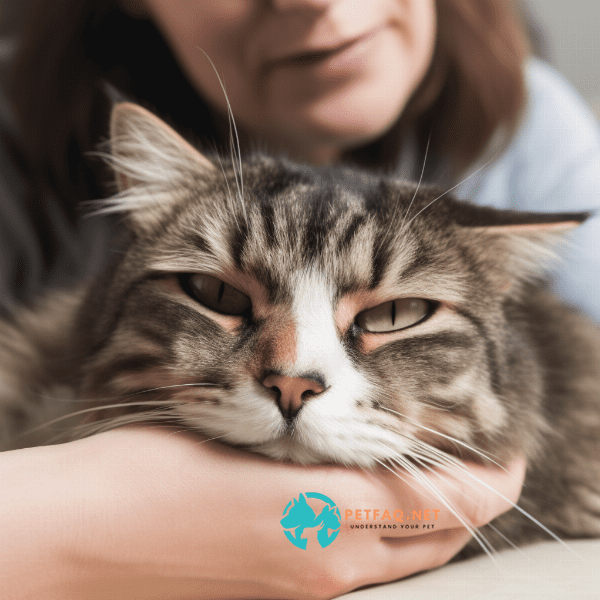
Potential Long-term Effects of Cat Inflamed Gums on Feline Health
Cat inflamed gums can have long-term effects on your cat’s dental health and overall wellbeing. Here are some potential long-term effects of cat inflamed gums on feline health:
Tooth Loss
Untreated cat inflamed gums can cause tooth loss, which can impact your cat’s ability to eat and groom themselves. This can lead to weight loss and other health problems over time.
Kidney Disease
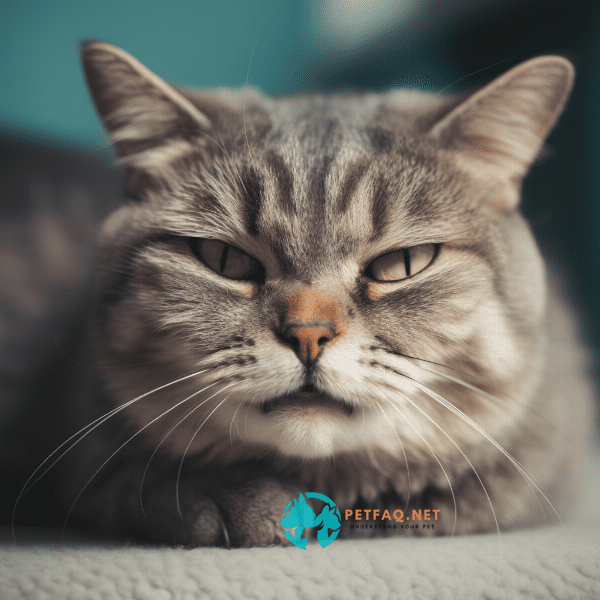
Loving Your Cat through Inflamed Gums: Tips for Caregivers
Caring for a cat with inflamed gums can be challenging, but with the right care and attention, you can help your cat feel comfortable and loved. Here are some tips for caregivers of cats with inflamed gums:
Provide Comfortable Sleeping Arrangements
Providing comfortable sleeping arrangements for your cat can help them feel relaxed and at ease. Soft bedding and a quiet, peaceful environment can help your cat get the rest they need to heal.
Administer Medication as Prescribed
Administering medication as prescribed by your vet is crucial for managing pain and discomfort in cats with inflamed gums. Follow your vet’s instructions carefully and ensure that your cat receives their medication on time.
Spend Quality Time Together
Spending quality time with your cat can help them feel loved and cared for. Engage in activities that your cat enjoys, such as playing with toys or cuddling together.
Practice Good Dental Hygiene
Practicing good dental hygiene for your cat can help prevent the development of cat inflamed gums and protect their dental health. Brush your cat’s teeth daily, offer dental treats and chews, and provide regular dental checkups.
By following these tips, you can help your cat feel comfortable and loved during their recovery from cat inflamed gums. With proper care and attention, your cat can maintain optimal dental health and overall wellbeing.
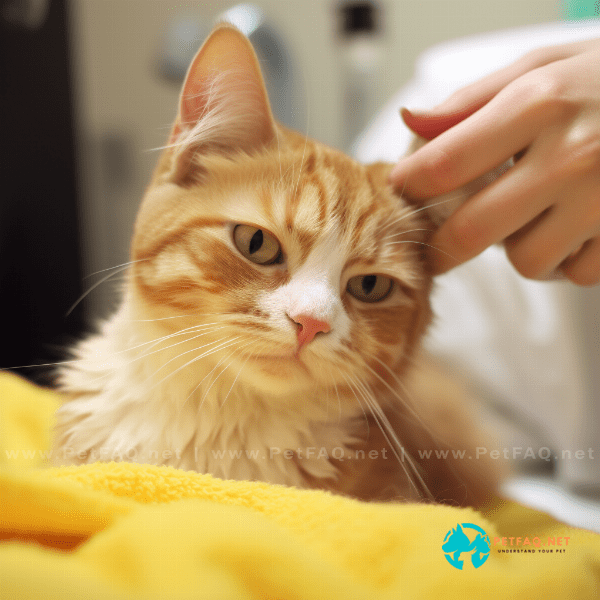
Frequently Asked Questions (FAQs) about cat inflamed gums:
1. What are some home remedies for treating inflamed gums in cats?2. Can inflamed gums in cats be a sign of a more serious health condition?
3. Can inflamed gums in cats be a sign of a more serious health problem?
4. What complications can occur if inflamed gums in cats are left untreated?
5. What is the treatment for inflamed gums in cats?


